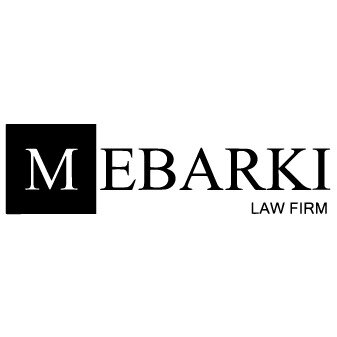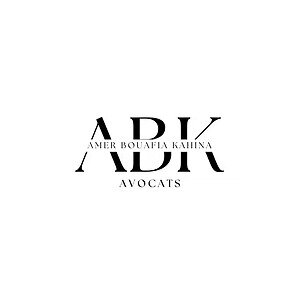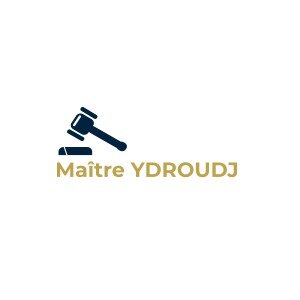Best Corporate Governance Lawyers in Algeria
Share your needs with us, get contacted by law firms.
Free. Takes 2 min.
Or refine your search by selecting a city:
List of the best lawyers in Algeria
About Corporate Governance Law in Algeria
Corporate Governance in Algeria refers to the framework of rules, practices, and processes by which companies are directed and controlled. It outlines the relationships among the management, board of directors, shareholders, and other stakeholders. The goal of corporate governance is to ensure accountability, transparency, and ethical business conduct within organizations. In Algeria, this field has evolved steadily, shaped by local legislation, international standards, and the economic needs of the market. Key issues include board structure, disclosure requirements, shareholder rights, and the responsibilities of executives and directors.
Why You May Need a Lawyer
Corporate governance can be complex and is central to business success and compliance. People may require legal assistance for various reasons related to corporate governance in Algeria, including:
- Establishing or restructuring a company's governance framework
- Understanding and implementing mandatory disclosure and reporting requirements
- Ensuring compliance with the Algerian Commercial Code and sector-specific corporate laws
- Resolving disputes among shareholders or between shareholders and management
- Advising on mergers, acquisitions, and takeovers
- Navigating conflicts of interest and director liability issues
- Preparing and reviewing board meeting minutes and resolutions
- Providing training on best governance practices
- Protecting minority shareholders’ rights
- Assisting with regulatory investigations or audits
Due to the technicalities and potential legal consequences, enlisting the help of a qualified lawyer is crucial for navigating corporate governance matters efficiently.
Local Laws Overview
Algerian corporate governance is mainly regulated through the Commercial Code, the Law on Joint Stock Companies and Limited Liability Companies, and other ministerial regulations depending on the sector. Some of the most relevant aspects include:
- Company Types: The two most common corporate forms are Société à Responsabilité Limitée (SARL - Limited Liability Company) and Société par Actions (SPA - Joint Stock Company).
- Board Composition and Duties: Laws specify the size, appointment processes, and fiduciary duties of directors and managers. Directors must act in the company’s best interest and can be held liable for breaches.
- Shareholder Rights: Algerian law provides a framework for shareholders’ general meetings, voting rights, information access, and protections for minority shareholders.
- Disclosure and Transparency: Regular financial and operational disclosures to regulatory bodies and shareholders are mandated, including annual accounts and statutory auditor reports.
- Compliance Requirements: Companies must comply with anti-corruption laws, labor laws, and sector-specific regulations.
- Enforcement: The Algerian courts, along with regulatory authorities, oversee compliance and may impose sanctions for non-adherence to governance standards.
Frequently Asked Questions
What is corporate governance and why is it important in Algeria?
Corporate governance refers to the system by which companies are managed and controlled. It is important in Algeria as it fosters transparency, accountability, and ethical conduct, thereby attracting investment and minimizing business risk.
Are there any mandatory corporate governance codes in Algeria?
Algeria does not have a unified national governance code. However, sector-specific regulations and the Commercial Code outline various mandatory governance requirements.
Who is responsible for corporate governance in a company?
The board of directors and management are chiefly responsible for establishing and maintaining good governance practices, with oversight from shareholders and regulators.
What are the main obligations for board members?
Board members must act in the company's best interests, avoid conflicts of interest, ensure accurate records, and comply with both the company’s bylaws and relevant legal requirements.
How can minority shareholders protect their rights?
Minority shareholders have rights under the law to information, fair treatment, and to challenge certain decisions through legal action if their interests are harmed.
Are foreign investors subject to different governance rules?
Foreign investors generally follow the same governance requirements as local companies, but may face additional regulations based on their sector or specific investment agreements.
What disclosures are companies required to make?
Companies must disclose annual accounts, changes in management or shareholding, significant contracts, and other material events as dictated by sector rules and the Commercial Code.
What are the legal consequences of poor corporate governance?
Poor governance can lead to regulatory sanctions, director liability, shareholder disputes, loss of investor confidence, and reputational damage.
Can governance structures be tailored for different company sizes?
Yes, governance requirements vary depending on company size and type. Smaller companies typically have fewer obligations, while large or public companies face stricter rules.
How often should governance policies be reviewed?
Companies should review their corporate governance policies regularly, at least annually, or whenever there are significant legal or structural changes.
Additional Resources
If you are looking for further information or advice on corporate governance in Algeria, the following resources can be helpful:
- Ministry of Industry and Pharmaceutical Production (Ministère de l’Industrie et de la Production Pharmaceutique): Oversees industrial policy and corporate oversight.
- National Center of the Trade Register (Centre National du Registre du Commerce - CNRC): Handles company incorporations, filings, and legal records.
- Algerian Chamber of Commerce and Industry (Chambre Algérienne de Commerce et d’Industrie - CACI): Provides guidance and support for businesses on legal and governance matters.
- Order of Chartered Accountants (Ordre National des Experts Comptables): Offers expert advice on statutory audits and financial transparency.
- Algerian Bar Association (Ordre National des Avocats): Directory of legal professionals who can provide specialized corporate law advice.
Next Steps
If you require legal assistance in the field of corporate governance in Algeria:
- Clearly define the issue or area where you need help, such as board composition, shareholder rights, or compliance matters.
- Gather all relevant documents, such as company statutes, board minutes, and regulatory filings.
- Contact a licensed Algerian lawyer who specializes in corporate law and governance. Use the Algerian Bar Association for recommendations.
- Discuss your goals and challenges with your legal advisor to develop a tailored strategy.
- Follow your lawyer’s guidance regarding legal obligations, filings, or dispute resolution steps.
- Stay updated with changes to relevant laws and best practices by consulting professional organizations or attending training sessions.
An early consultation with a legal professional can help prevent disputes, ensure compliance, and safeguard your company’s reputation and long-term success.
Lawzana helps you find the best lawyers and law firms in Algeria through a curated and pre-screened list of qualified legal professionals. Our platform offers rankings and detailed profiles of attorneys and law firms, allowing you to compare based on practice areas, including Corporate Governance, experience, and client feedback.
Each profile includes a description of the firm's areas of practice, client reviews, team members and partners, year of establishment, spoken languages, office locations, contact information, social media presence, and any published articles or resources. Most firms on our platform speak English and are experienced in both local and international legal matters.
Get a quote from top-rated law firms in Algeria — quickly, securely, and without unnecessary hassle.
Disclaimer:
The information provided on this page is for general informational purposes only and does not constitute legal advice. While we strive to ensure the accuracy and relevance of the content, legal information may change over time, and interpretations of the law can vary. You should always consult with a qualified legal professional for advice specific to your situation.
We disclaim all liability for actions taken or not taken based on the content of this page. If you believe any information is incorrect or outdated, please contact us, and we will review and update it where appropriate.
Browse corporate governance law firms by city in Algeria
Refine your search by selecting a city.












